Welcome to Luhangara – a Panchayat in Odisha Where Nobody Defecates in the Open
Five panchayats in Gajapati district of Odisha overcame all hurdles to finally get declared Open Defecation Free (ODF). Now, the aim is to make all 119 panchayats in the district ODF by 2016. Read how the administrators, volunteers and villagers themselves are coming together to make this happen.
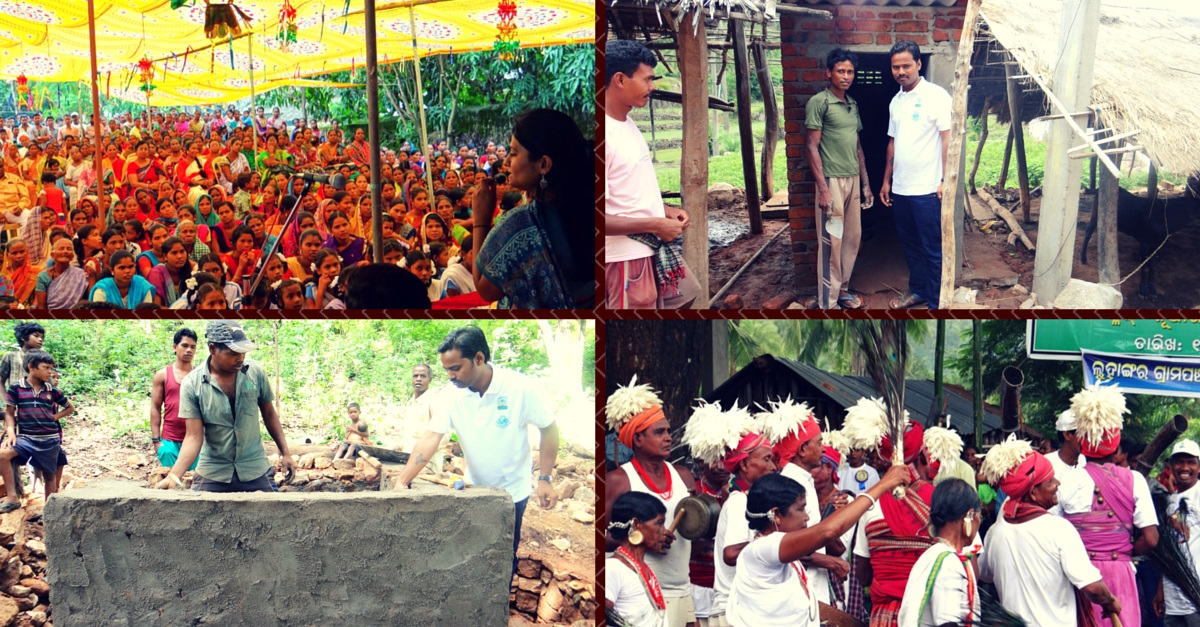
Five panchayats in Gajapati district of Odisha overcame all hurdles to get finally declared Open Defecation Free (ODF). Now, the aim is to make all 119 panchayats in the district ODF by 2016. Read how the administrators, volunteers and villagers themselves are coming together to make this happen.
As per census reports, 76.6% of homes in Odisha do not have toilets. This state with the largest number of tribal communities in India, is divided into 30 districts. Due to their remote location, many of the villages in these districts do not have access to proper health care services, which makes the need for sanitation all the more important.
However, there is one district in Odisha that has chosen a fast track to development. Welcome to Gajapati district, which now proudly boasts of five Open Defecation Free (ODF) panchayats.
The Campaign: Mo Swachha Sauchalaya (My Clean Toilet)
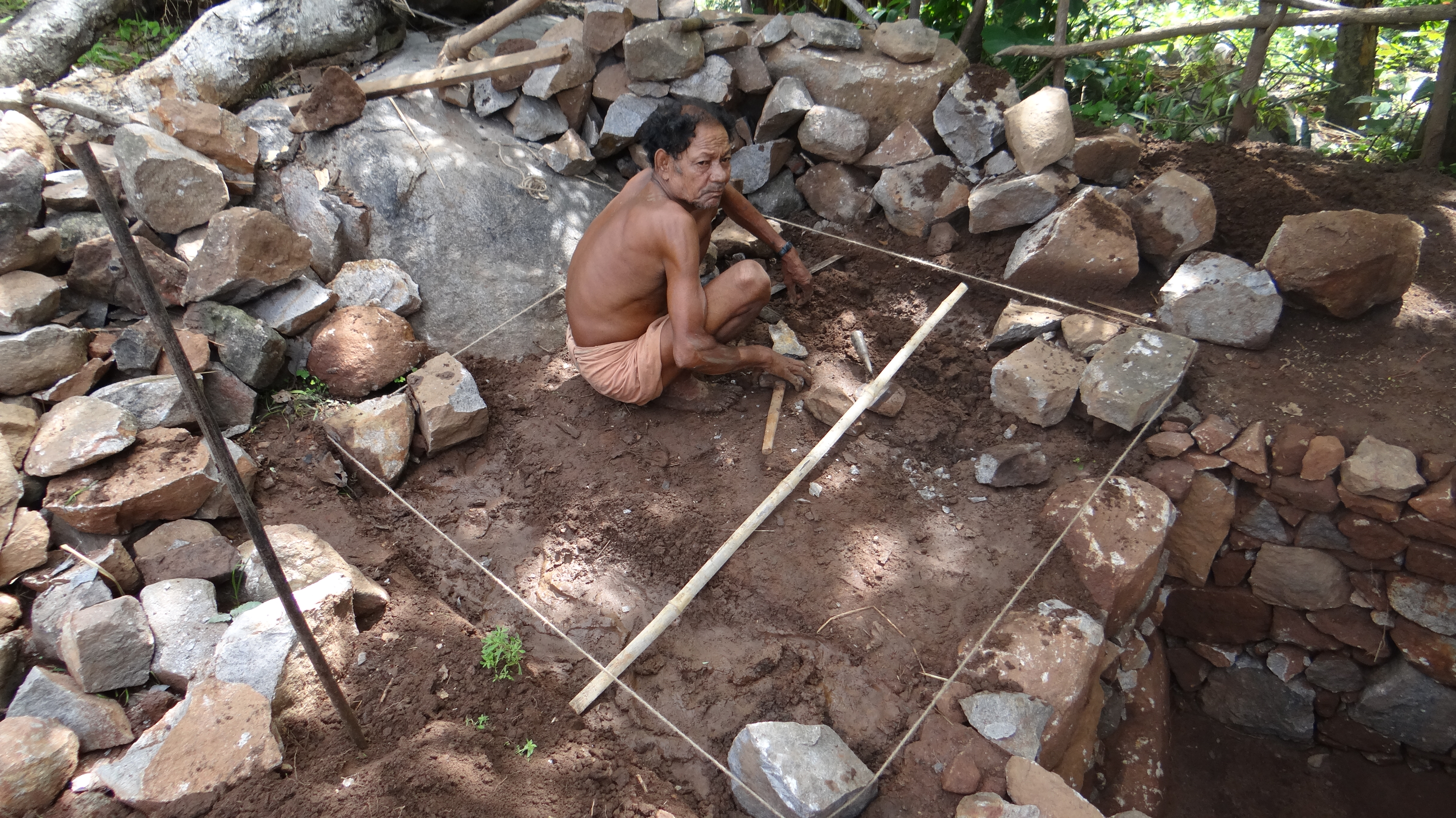
In February 2015, the district administration in Gajapati started a campaign for the building of toilets, under the leadership of the District Collector Mansi Nimbhal. Even though the campaign comes under the Swachha Bharat Mission of the Government of India, the administration here wanted people in the community to consider it their own campaign. Hence the name, Mo Swachha Sauchalaya, signifying the two basic things that the campaign is aiming for:
• To build toilets in the district by actively involving the community.
• To concentrate on behavioural change aspects when it comes to the attitude of people towards sanitation.
As per the Swachha Bharat Mission, the government gives a sum of Rs. 12,000 per toilet to every beneficiary who builds a toilet at his/her home.
The first step was to study and analyse the challenges in the district. Out of the seven blocks in Gajapati district, five are dominated by the tribal population. The major challenges here include difficulty in supply of raw materials and trouble mobilizing the community. Here are a few steps that are being taken towards the mission of making the entire district (119 panchayats) Open Defecation Free by April 2016.
The Learnings and Training
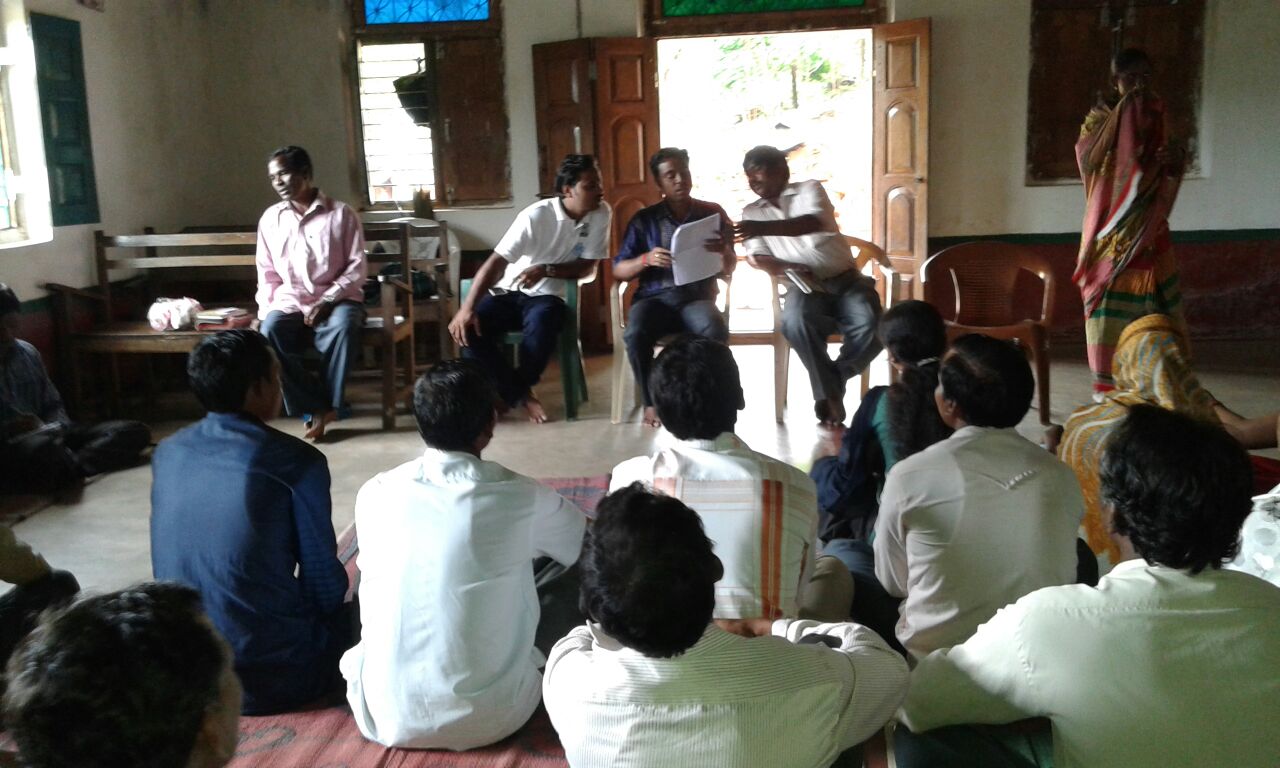
The district administration first formed a team of ten members, which included Block Development Officers, a Prime Minister’s Rural Development Fellow, and a few Self-Help Group (SHG) members. This team was sent to the Nadia district of West Bengal to learn about their Sabar Shouchagar (toilets for all) model—because of which Nadia was declared the first Open Defecation Free district in the country. Comprehensive guidelines, pointing out the local challenges and possible solutions, were then framed by the team.
Following this, the administration formed two teams at the District and Block levels—the District Resource Team (DRT) and the Block Resource Team (BRT). Every block comprises 15-20 panchayats. The BRTs include engineers and staff members to implement the project, who in turn report to the DRT, which is made up of three Prime Minister’s Rural Development Fellows and some development fellows and consultants from the District Water and Sanitation Mission. The DRT works directly under the Collector and looks at smooth functioning at the panchayat level.
These teams then began with the CLTS (Community Led Total Sanitation) training, which is very important when it comes to changing the mindset of the people towards sanitation practices.
Under CLTS activities, all the villagers, Sarpanch, and Anganwadi workers of the concerned panchayats were included for training.
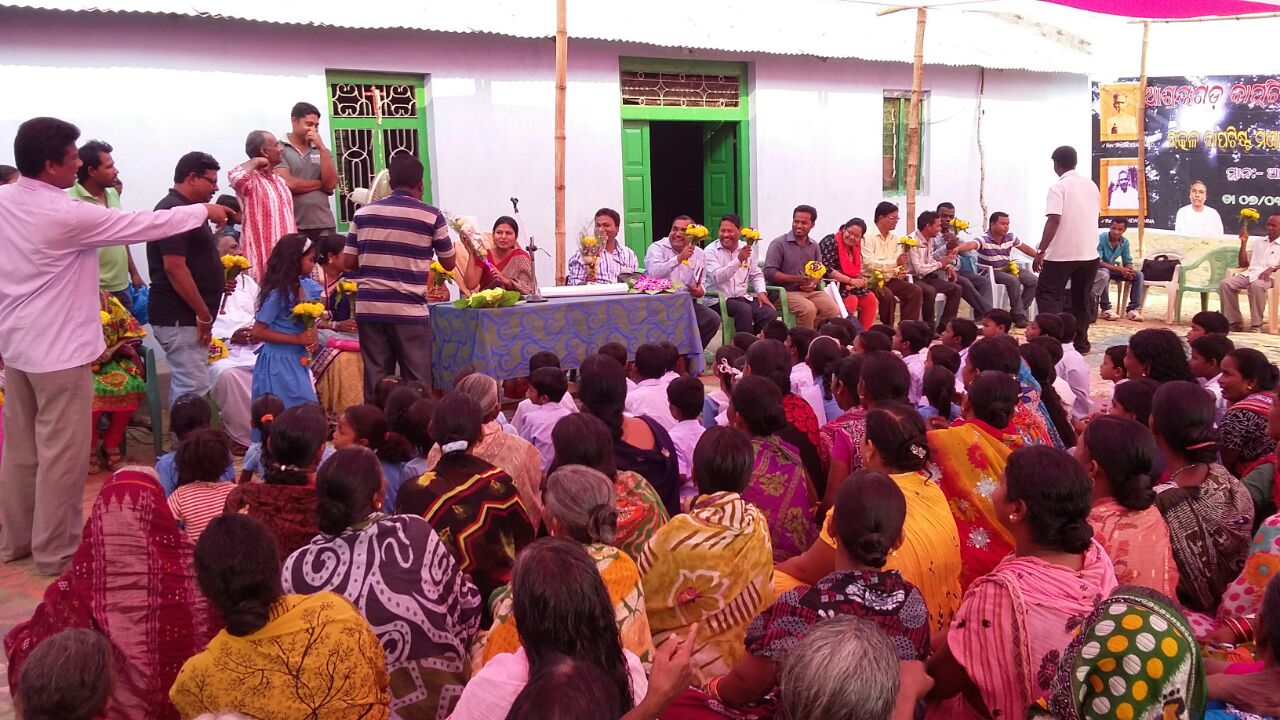
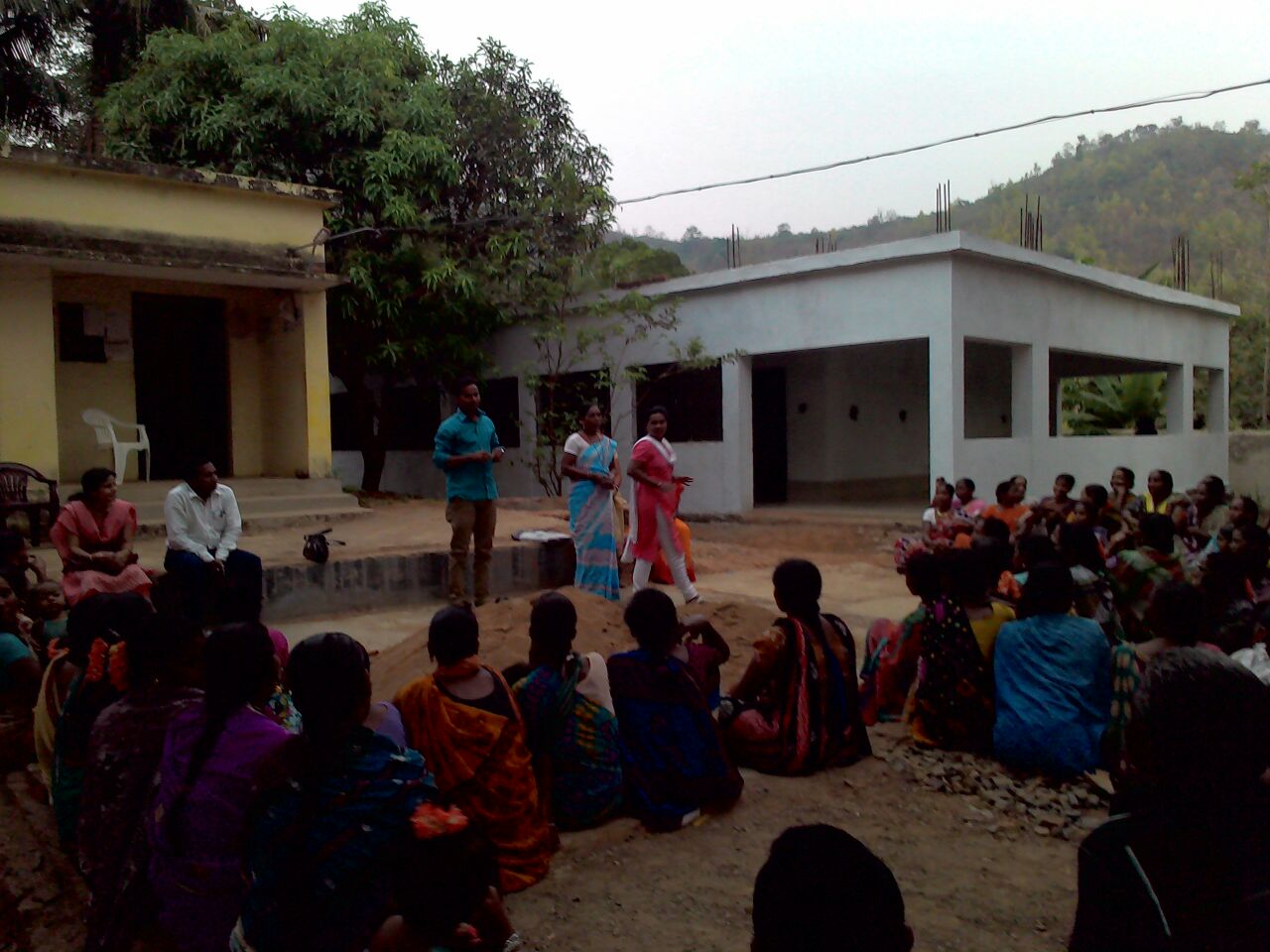
CLTS meetings are very interactive in nature. Villagers ask questions and learn why toilets are necessary and why people are falling sick with diarrhoea and various water related diseases. Some experiments, showing the spread of insects and germs because of open defecation, are also demonstrated. Just a simple demonstration sometimes leads people to immediately decide that they should have toilets in their homes. The sessions usually end with villagers taking an oath to contribute towards the construction of toilets and using them.
The Luhangara Panchayat
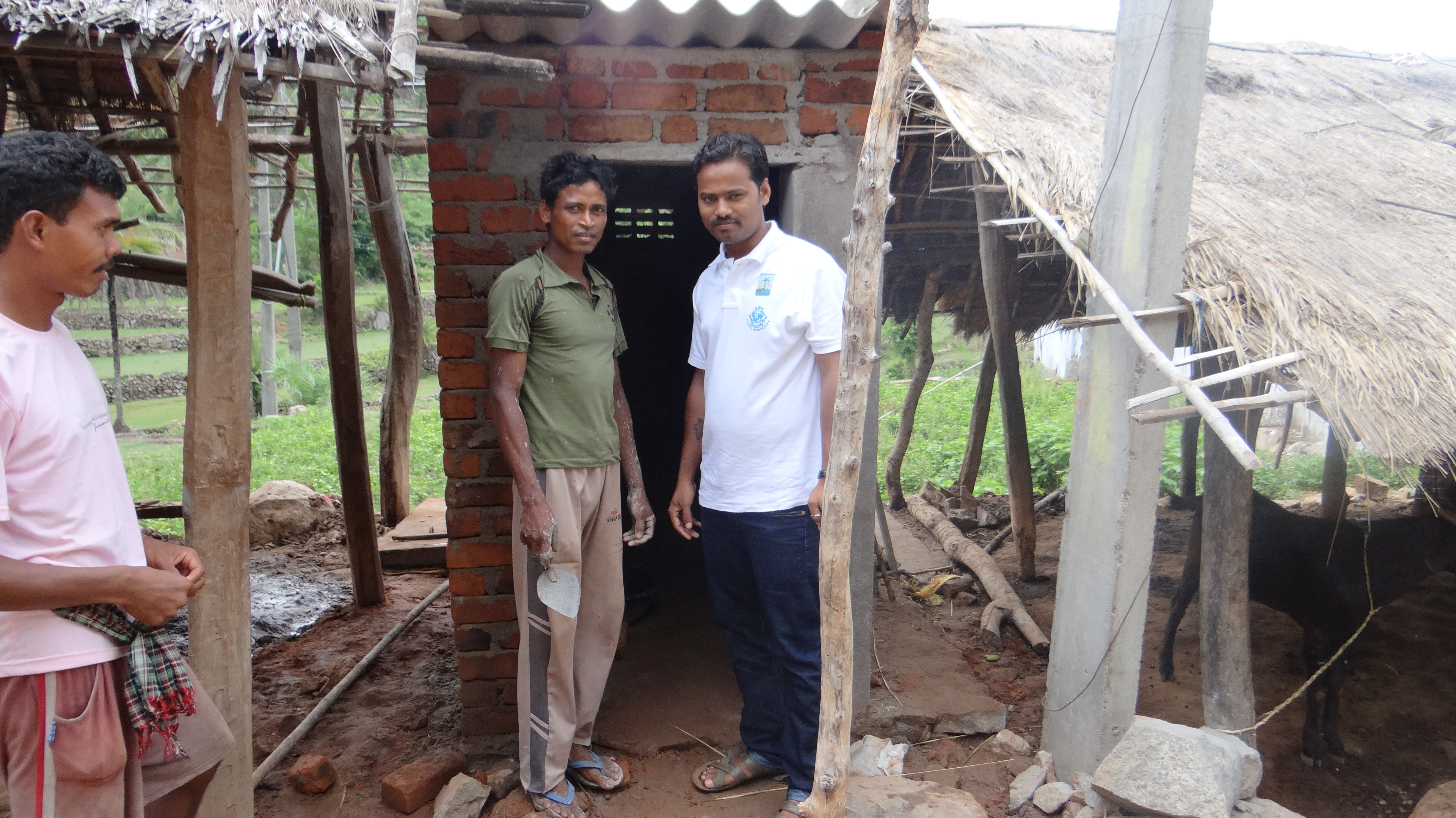
DRT member, Prakash Kumar Sahoo, who is working as a Prime Minister’s Rural Development Fellow in the district since the past three years, was given charge of the Luhangara panchayat, with the deadline to make it Open Defecation Free by the second week of July. “This panchayat consists of more than 1000 households and has 17 villages and hamlets. Most of its villages are situated in hilly terrains.” Some of these villages already had toilets because of the work of Gram Vikash NGO in the district. Hence, there were around 540 households that needed toilet constructions.
“Initially, one Self Help Group (SHG) was formed in each panchayat and the group was trained about the basics of toilet construction, how to obtain the materials, and the entire building process. However, this idea did not work well because we soon found that most of the people in the community wanted to build their toilets on their own, using their own manpower. Hence, individual trainings were then given.”
After the CLTS meetings here, the community started taking ownership of the campaign and started building toilets in their homes.
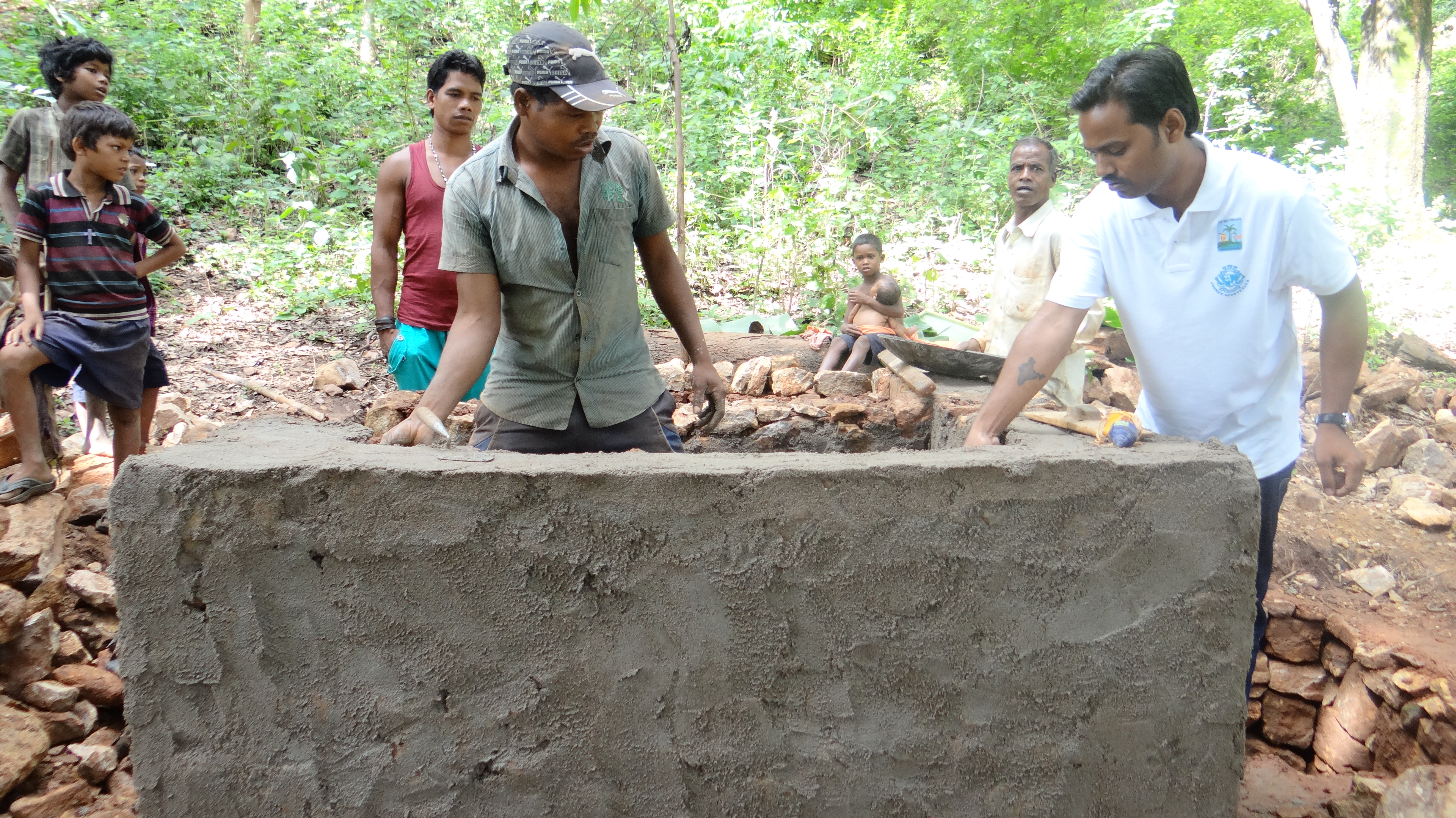
“School children were also mobilized. They used to offer polythene bags full of sand to those people who went to defecate in the open so that they would feel ashamed of their regular habit,” says Prakash.
District administration teams were involved in follow-ups throughout, to make sure that toilets were being constructed.
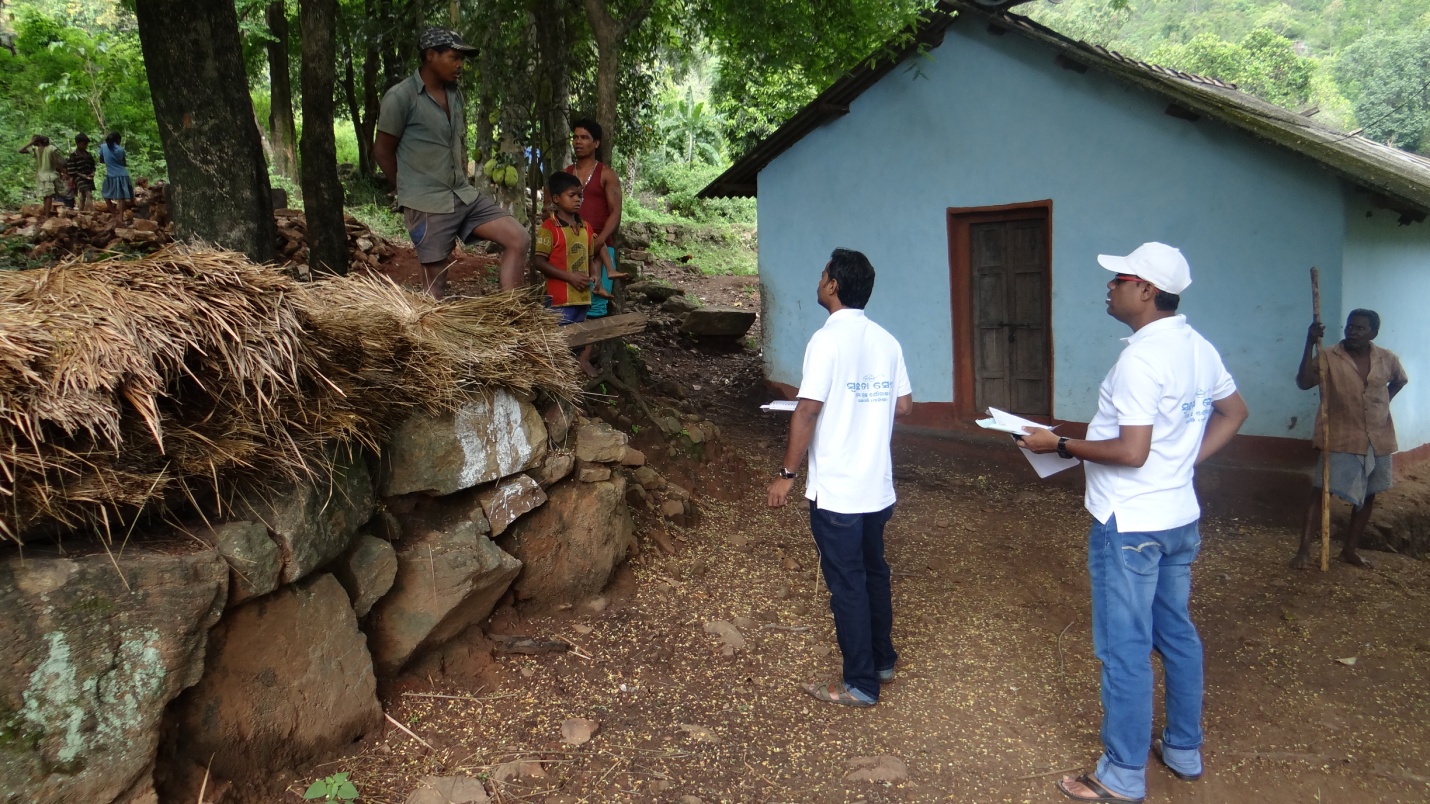
At the village level, local volunteers were selected who had to motivate people to construct as well as use toilets. They were encouraged to build toilets using locally available material like stones and soil, because the supply of bricks was extremely difficult in the hilly terrain.
This panchayat was finally declared Open Defecation Free on 11th July, 2015.
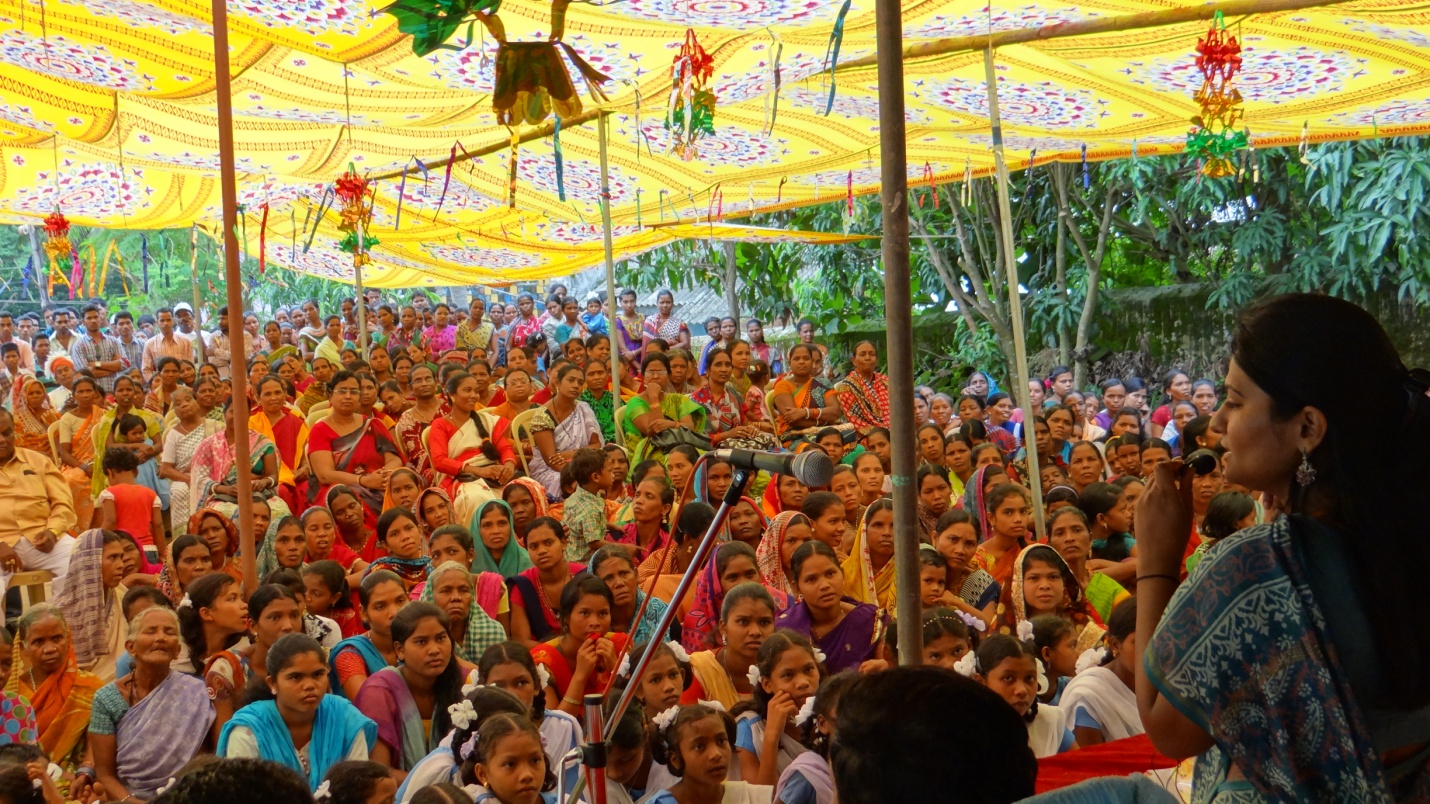
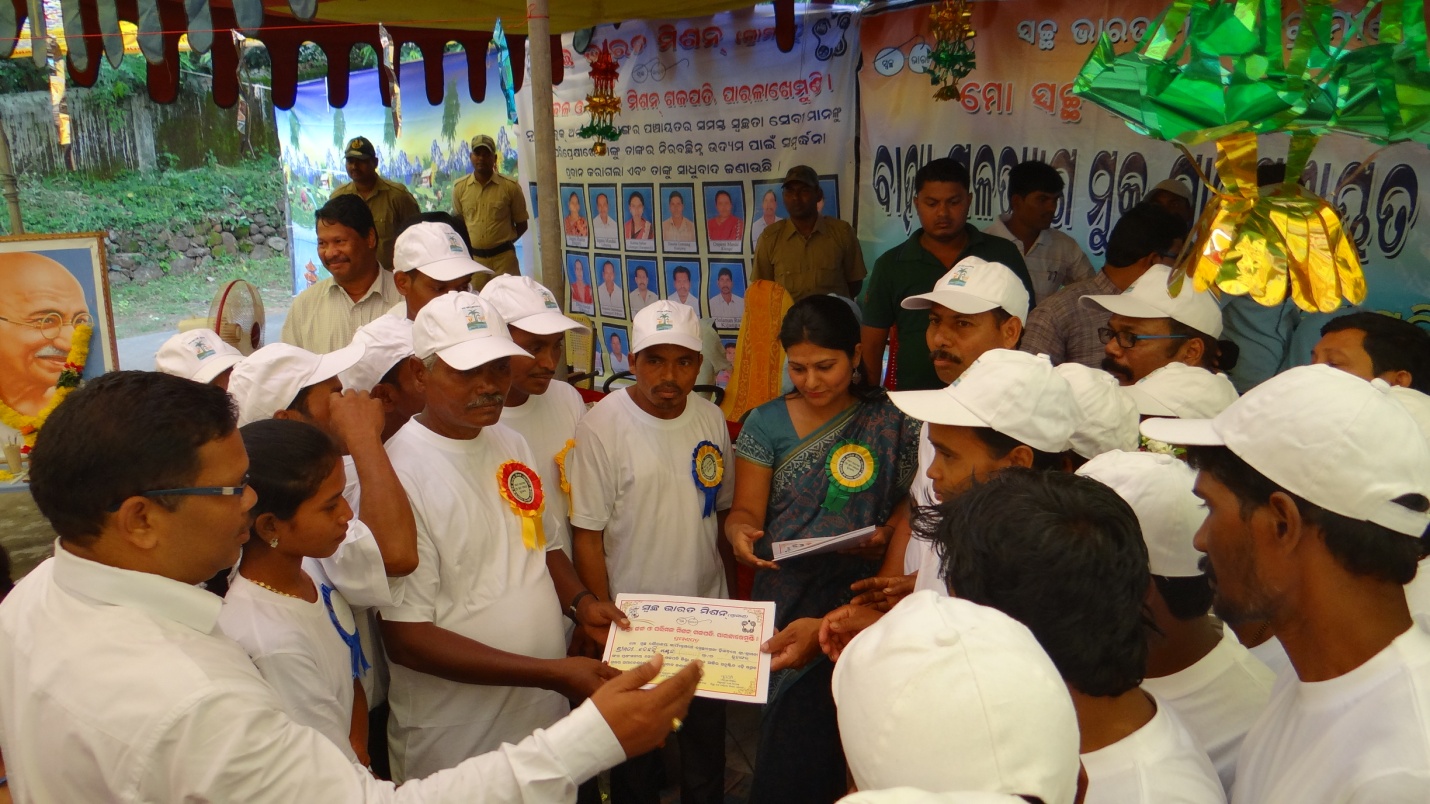
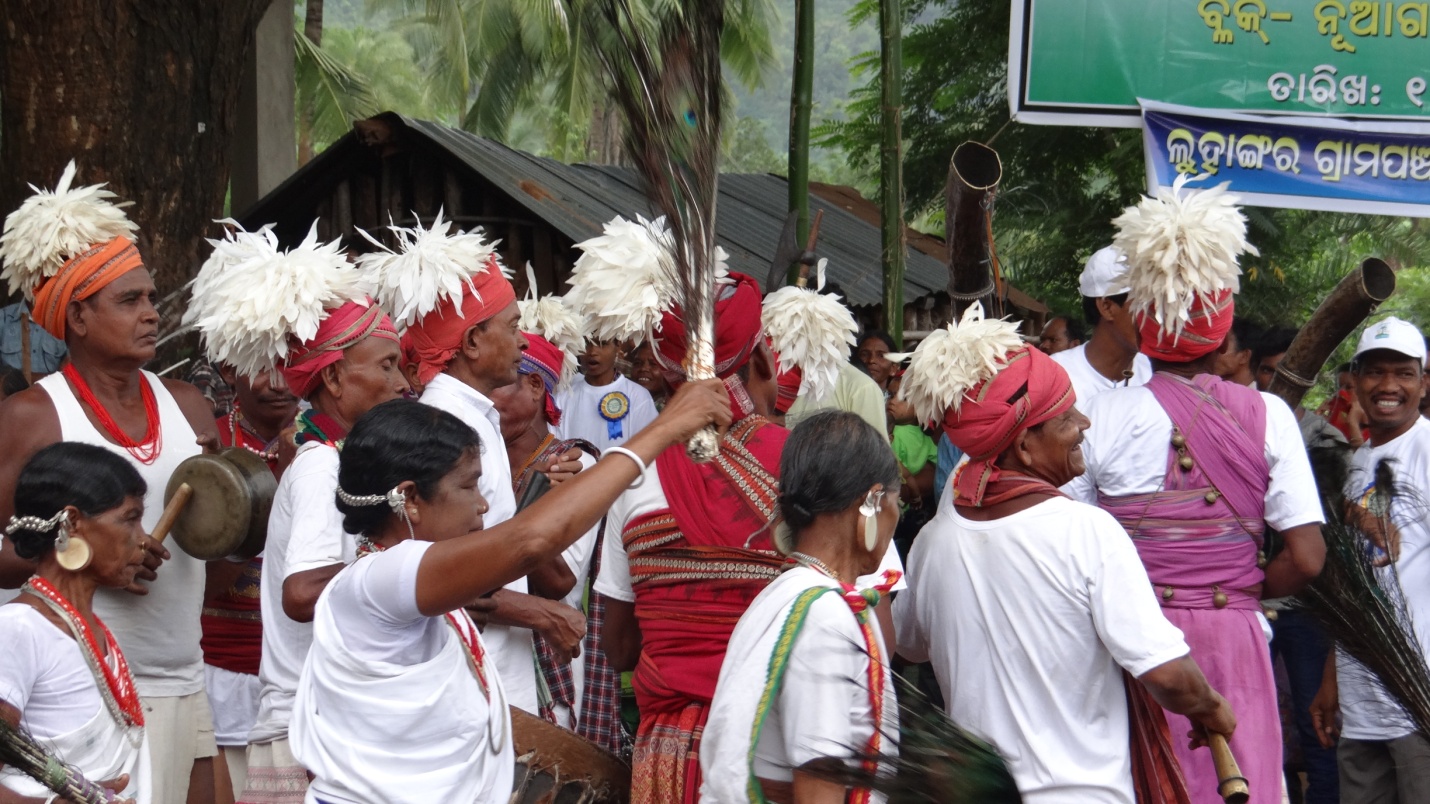
“Good times start from today for people of this panchayat,” said Mansi Nimbhal, on the occasion of the Open Defecation Free panchayat celebration at Luhangara.
For more details about the work being done, you can write to Prakash Kumar Sahoo at [email protected].
In order to know more about the Prime Minister’s Rural Development Fellowship, visit here.
Valuable inputs from: Prakash Kumar Sahoo (Prime Minister’s Rural Development Fellow), currently posted at Gajapati district
Like this story? Or have something to share? Write to us: [email protected], or connect with us on Facebook and Twitter (@thebetterindia).
If you found our stories insightful, informative, or even just enjoyable, we invite you to consider making a voluntary payment to support the work we do at The Better India. Your contribution helps us continue producing quality content that educates, inspires, and drives positive change.
Choose one of the payment options below for your contribution-
By paying for the stories you value, you directly contribute to sustaining our efforts focused on making a difference in the world. Together, let’s ensure that impactful stories continue to be told and shared, enriching lives and communities alike.
Thank you for your support. Here are some frequently asked questions you might find helpful to know why you are contributing?


This story made me
-
97
-
121
-
89
-
167













